
Christopher Crockett
Associate News Editor
Christopher Crockett is an Associate News Editor. He was formerly the astronomy writer from 2014 to 2017, and he has a Ph.D. in astronomy from the University of California, Los Angeles.

Trustworthy journalism comes at a price.
Scientists and journalists share a core belief in questioning, observing and verifying to reach the truth. Science News reports on crucial research and discovery across science disciplines. We need your financial support to make it happen – every contribution makes a difference.
All Stories by Christopher Crockett
-
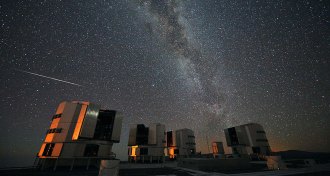 Astronomy
AstronomyThis year’s Perseid meteor shower will be especially flashy
This year’s Perseid meteor shower could produce up to 200 meteors per hour as Earth plows through the debris trail of comet 109P/Swift-Tuttle.
-
 Astronomy
AstronomyMagnetic fields in sun rise at 500 kilometers per hour
Magnetic fields within the sun rise up no faster than about 500 kilometers per hour, suggesting that the movement of gas is responsible for bringing these fields to the sun’s surface.
-
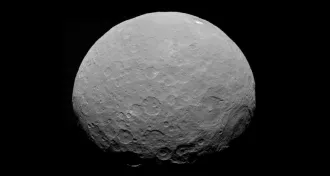 Planetary Science
Planetary ScienceCeres is more than just a space rock
Dawn spacecraft reveals that the dwarf planet Ceres hides a core of solid rock beneath an outer crust of minerals, salts and ices.
-
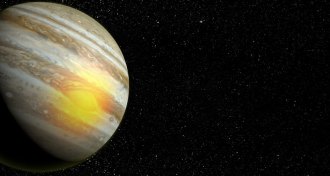 Planetary Science
Planetary ScienceJupiter’s Great Red Spot is hot
High temperatures over Jupiter’s Great Red Spot suggest that storms pump heat into the atmosphere and warm the entire planet.
-
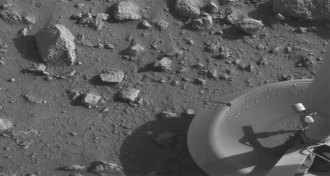 Planetary Science
Planetary Science40 years ago, Viking 1 pioneered U.S. exploration on Mars
Forty years ago, Viking 1 became the first U.S. mission to land safely on the surface of Mars.
-
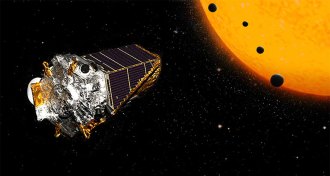 Astronomy
AstronomyKepler tally grows: 104 more exoplanets confirmed
Kepler space telescope adds another 104 planets to its growing census of worlds in our galaxy.
-
 Astronomy
AstronomyBlack hole born without stellar parent, evidence suggests
A galaxy in the early universe might harbor the first known “direct collapse” black hole, one that forms when a cloud of gas collapses under its own weight without forming stars.
-
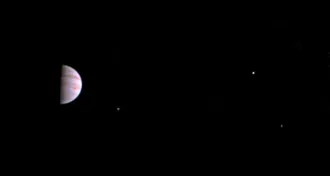 Planetary Science
Planetary ScienceJuno snaps its first pic of Jupiter
Jupiter and three of its moons take center stage in the first snapshot taken by the Juno spacecraft since arriving at the planet on July 4.
-
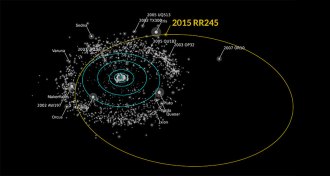 Planetary Science
Planetary ScienceNew dwarf planet discovered lurking beyond Neptune
Newly discovered dwarf planet 2015 RR245 takes about 700 years to orbit the sun and lives among the icy boulders of the Kuiper belt.
-
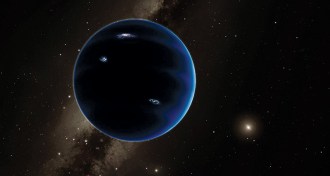 Planetary Science
Planetary ScienceNew clues in search for Planet Nine
Lots of unknowns remain as researchers try to pin down where a possible ninth planet might be hiding in the solar system.
-
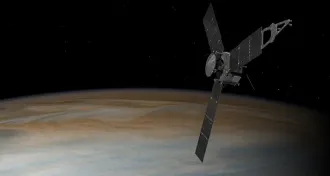 Planetary Science
Planetary ScienceThe Juno spacecraft is now in orbit around Jupiter
NASA’s Juno spacecraft successfully entered orbit around Jupiter, beginning a 20-month investigation of the giant planet’s interior.
-
 Planetary Science
Planetary ScienceThe Juno spacecraft is now in orbit around Jupiter
NASA’s Juno spacecraft successfully entered orbit around Jupiter, beginning a 20-month investigation of the giant planet’s interior.